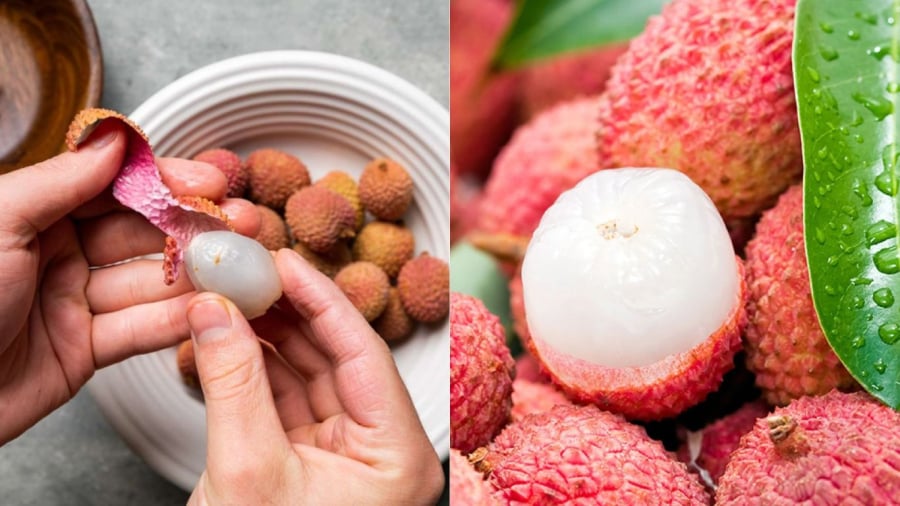Consuming an excessive amount of lychees can be detrimental to one’s health, especially for those who are overweight or at risk of diabetes. So, how many lychees should one eat daily to enjoy their sweet taste without worrying about weight gain or blood sugar spikes? Let’s find out in this article.
1. What Are the Potential Health Risks of Eating Too Many Lychees?
According to Dr. Phung Tuan Giang, Chairman of the Institute for Research and Development of Vietnamese Traditional Medicine, some studies indicate that consuming large quantities of unripe lychees on an empty stomach can lead to acute hypoglycemia, resulting in brain damage in children. This is due to compounds found in lychees such as Hypoglycin A and MCPA, which inhibit the conversion of fat into glucose, causing energy deficiency and potentially affecting brain function.
A study in India also revealed that the levels of these two toxic compounds in unripe lychees are two to three times higher compared to fully ripe ones. Although there hasn’t been specific research in Vietnam on these compound levels, experts still advise consumers to exercise caution.
2. So, How Many Lychees Should We Eat Daily?
To stay on the safe side, Dr. Giang offers the following recommendations:
For children:
- Avoid eating lychees on an empty stomach.
- Limit consumption to around 100g of lychees per day, which is approximately 5 lychees.
For adults:
- Consume in moderation, not exceeding 200g/day, or about 10 large lychees.
- Refrain from eating unripe lychees and avoid consuming them on an empty stomach.

Children should consume around 100g of lychees daily, while adults should not exceed 200g/day.
3. What Are the Benefits of Eating Lychees in Moderation?
Despite the potential risks associated with overconsumption, lychees offer numerous health benefits when enjoyed in appropriate quantities:
3.1 Rich in Vitamin C, Boosting Immunity
According to Dr. Giang, lychees are an excellent source of Vitamin C, a potent antioxidant that strengthens the immune system. Vitamin C also reduces the risk of infections and aids in recovery from illnesses, particularly respiratory tract infections.
3.2 Abundant in Antioxidants, Preventing Chronic Diseases
Lychees contain high levels of antioxidants such as flavonoids, anthocyanins, and Vitamin C, which protect cells from free radical damage. These antioxidants support long-term health and lower the risk of chronic diseases, including cancer, diabetes, and cardiovascular diseases.

Knowing the appropriate daily intake of lychees can effectively prevent cardiovascular diseases.
3.3 Anti-inflammatory and Antiviral Properties
Research indicates that lychees help manage inflammation due to their flavonoid and antioxidant content, which can inhibit pro-inflammatory genes and prevent free radical accumulation in the body.
In addition to their antioxidant and anti-inflammatory properties, lychees also exhibit antiviral characteristics. Studies show that extracts from lychee flowers can suppress the herpes simplex virus in corneal cells.
3.4 Anticancer Effects
A 2017 review in the journal Nutrients highlighted that the pulp, peel, and seeds of lychees contain compounds with tumor-inhibiting and anticancer properties.
Lychees are delicious and nutritious, but moderation is key. Eating lychees in the right amount, at the right time, and in the right way is crucial to maximizing their benefits while minimizing potential health risks. Understanding how many lychees to eat daily is essential to enjoying this fruit safely and healthily.
The Hidden Treasure of the Sea: How This Fish’s Roe Rivals Bird’s Nest and Ginseng in Value
“In the past, not many paid attention to the nutritional value of this particular fish part. But now, it has evolved into a prized commodity. This once-overlooked piece of the piscine puzzle is now a sought-after delicacy, with a unique flavor profile and an impressive nutrient roster. It is time to uncover the hidden treasure that is [name of fish product].”



































